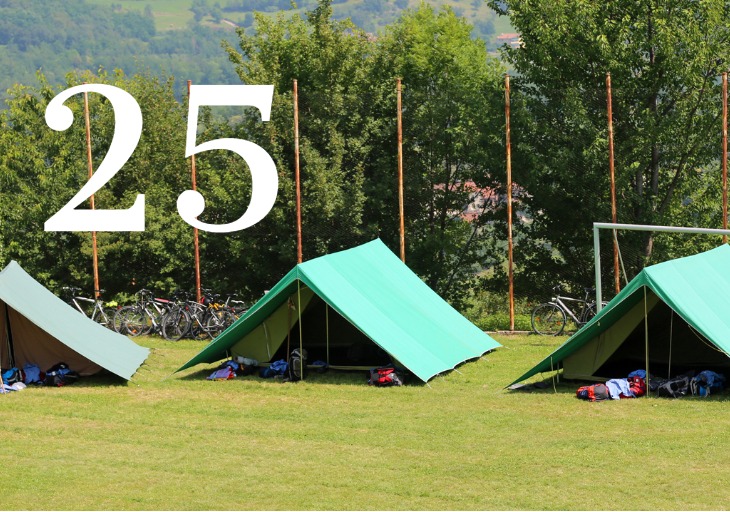#25 of Genova Burns’ Anniversary Countdown of the Most Influential Cases, Events and Laws in New Jersey
Boy Scouts of America vs. Dale (2000) #25
August 26, 2019
In recent years, the mission, vision and values of some of our country’s enduring institutions have come under close scrutiny, both in courts of law and public opinion, for their fairness, parity and equal treatment of individuals who fall outside of those foundational elements. One such organization is the Boy Scouts of America (BSA).
In Boy Scouts of America vs. Dale, a scoutmaster from New Jersey came out as gay after local media reported about his election as president of the Lesbian/Gay Alliance at Rutgers University. BSA’s subsequent expulsion of that scoutmaster set off a series of legal challenges in New Jersey courts, with the case ultimately ending up in the United States Supreme Court. It was the first case that defined the power of organizations, like the BSA, to exclude members who did not conform to the foundational tenets of the organization.
“Our country has continued its evolution towards tolerance and acceptance of LGBTQ people, culminating in the U.S. Supreme Court recognizing that federal and state governments cannot discriminate against same sex marriage,” said Lawrence Bluestone, Esq., Counsel at Genova Burns. “Recent changes to the BSA’s policies to become more inclusive aside, the Court’s decision in Dale is a reminder that under the rubric of the First Amendment’s protection of free association, private organizations have been permitted to exclude specific groups from their membership.”
CASE SUMMARY:
The case began when James Dale, an assistant scoutmaster in the Boy Scouts of America (BSA), was expelled from the organization after the BSA’s leadership learned that Dale identified as gay and was active in the gay rights movement. Dale was a student at Rutgers University, where he became co-president of the Lesbian/Gay student alliance. In July 1990, he attended a seminar on the health needs of lesbian and gay teenagers, where he was interviewed. An account of the interview was published in a local newspaper and Dale was quoted as identifying as gay. BSA officials learned of the report and expelled Dale from his position as assistant scoutmaster of a New Jersey-based scout troop. Dale, a former scout who achieved Eagle Scout rank, filed suit in New Jersey Superior Court, alleging that the Boy Scouts had violated the state statute prohibiting discrimination on the basis of sexual orientation in places of public accommodation.
In defense of Dale’s exclusion, the BSA used their organization policy that “homosexual conduct” is inconsistent with the requirement that a scout be “morally straight” and “clean.” The BSA had successfully defended similar lawsuits in other states, arguing that the organization is a private club and not a public accommodation, and that the First Amendment protected its right to exclude individuals with which it did not wish to associate.
The New Jersey Supreme Court ruled against the Boy Scouts, holding that it violated the State's Law Against Discrimination by revoking Dale's membership based on sexual orientation. New Jersey’s highest court rejected BSA’s First Amendment argument, finding that Dale's inclusion would not significantly affect BSA's ability to carry out its mission, and that New Jersey has a compelling interest in eliminating discrimination from society. The court concluded that the public accommodation law abridges no more rights than necessary to accomplish that legitimate purpose and held that the reinstatement of Dale to the BSA did not endorse or assume any public message.
After losing its case in New Jersey, the BSA appealed to the U.S. Supreme Court, which heard oral arguments in the spring of 2000. In its 5-4 decision in June 2000, the high court acknowledged that the government could override a group’s rights in order to promote a compelling state interest, but held that courts must defer to a private group’s view of what might interfere with its constitutionally protected right of expression. “Dale’s presence in the Boy Scouts would, at the very least, force the organization to send a message . . . that the Boy Scouts accept homosexual conduct as a legitimate form of behavior,” Chief Justice William Rehnquist said in his opinion for the majority.
Justice John Paul Stevens in his dissent opinion, stated that “it is plain as the light of day that neither one of these (BSA) principles—‘morally straight’ and ‘clean’—says the slightest thing about homosexuality.” He indicated that the BSA had not clearly proclaimed any anti-gay policy, Dale did not flaunt his sexual orientation, and no evidence existed that he wanted to use his position as scoutmaster to promote homosexuality to BSA members or to the world.
Dale affirms that while individuals are given a right to freely associate with whomever they wish, expressive associations, such as the BSA, are not forced to include members if they legitimately think those individuals’ beliefs will affect the group’s ability to convey the message they wish to promote. Basically, the First Amendment prohibits the government from compelling an organization to accept a member whose beliefs do not align with the tenets on which the organization stands.
Tags: Genova Burns LLC • Genova Burns • LGBTQ • Boy Scouts of America • Lawrence Bluestone • Discrimination


